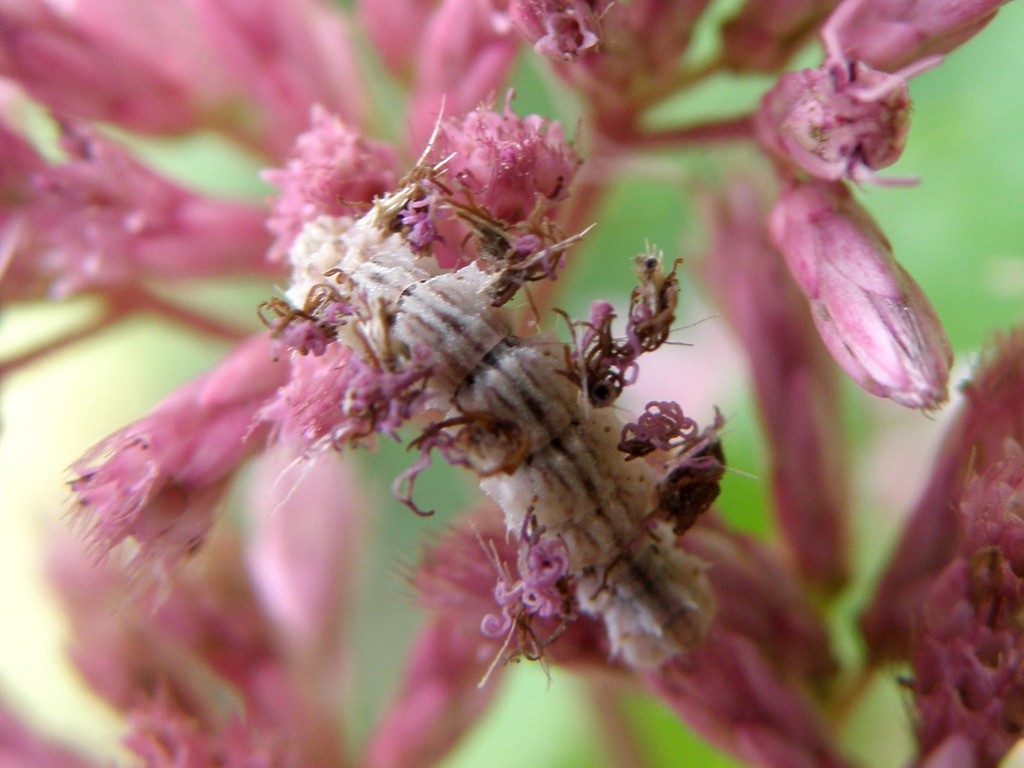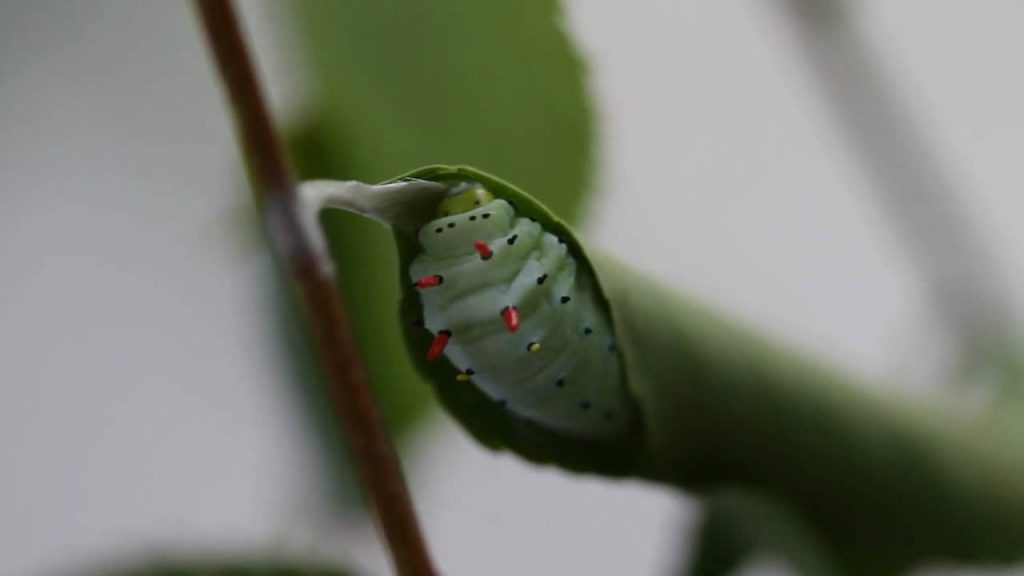While some people find caterpillars to be cute, adorable little creatures, others are utterly terrified of them. However, few people know how truly fascinating and bizarre the world of the humble caterpillar really is. This fascinating list will reveal unbelievable displays of amazing abilities.
Portable Suit of Armor
Hermit crab caterpillar from Peru exhibits a behavior that, as far as anyone can tell, has never been previously seen in caterpillars before. The caterpillar makes its own little suit of armor out of leaves which it rolls into a small tube and glues together using its sticky spit. The caterpillar then lies inside this tube and drags itself around the forest floor using its mouth, pulling its leafy coverage along behind it. As the caterpillar forages for food, its body remains protected, encased in its portable cocoon.
Amazing Camouflage
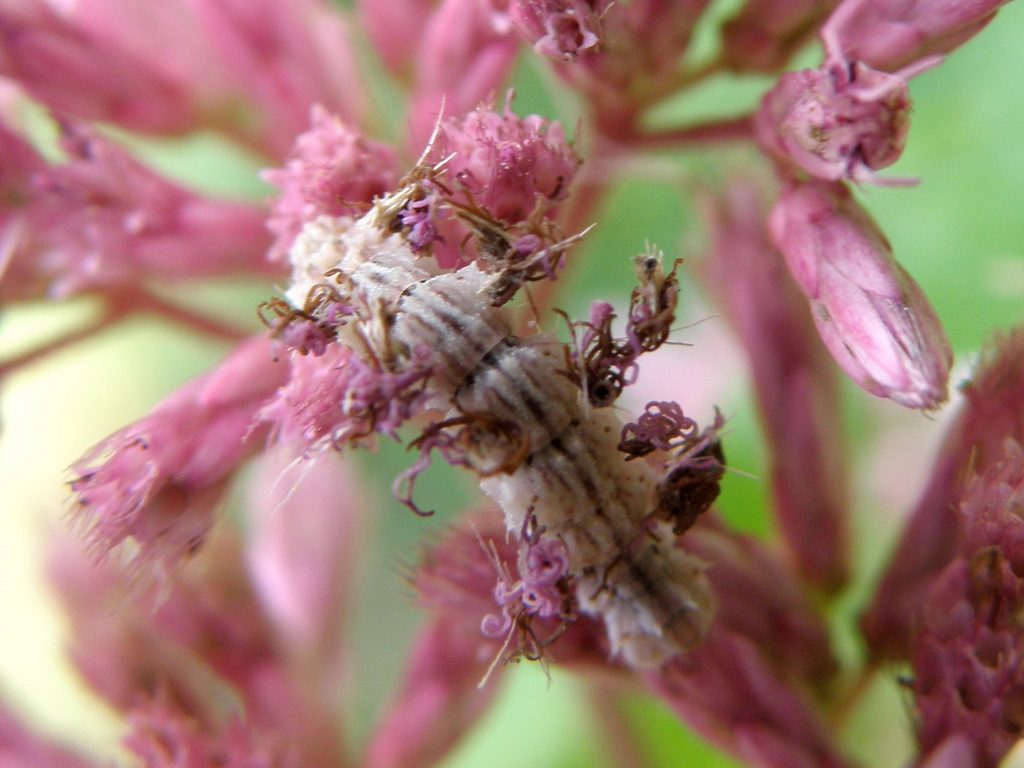
Caterpillars employ all sorts of bizarre disguises to protect their soft, squishy bodies from all the animals and insects out there that have caterpillar on the menu. There is one species which is unique among all its soft-bodied brethren. This amazing little caterpillar, named the camouflaged looper, disguises itself using bits of petals and other parts plucked from the variety of plants that it eats. The caterpillar decorates itself by sticking pieces of petals and leaves to its back using its silken spit.
The Hopping Caterpillar
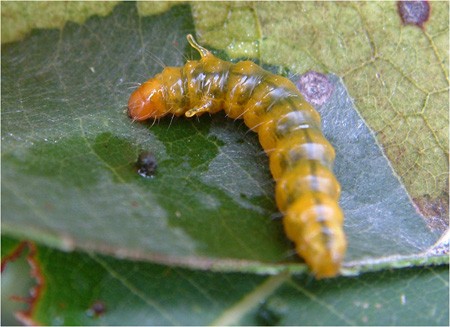
In the forests of Southern Vietnam, one species of caterpillar wraps itself in leaves which it fashions into a tiny sleeping bag when it prepares to pupate. The caterpillar, called Calindoea trifascialis, and then proceeds to hop around the forest floor completely encased in its leafy cocoon, directing itself away from sunlight. To gain momentum for each hop, the caterpillar anchors its anal prolegs to the bottom of its leafy abode and pistons itself backward, hopping away from the direction its head is facing.
The Mad Hatterpillar
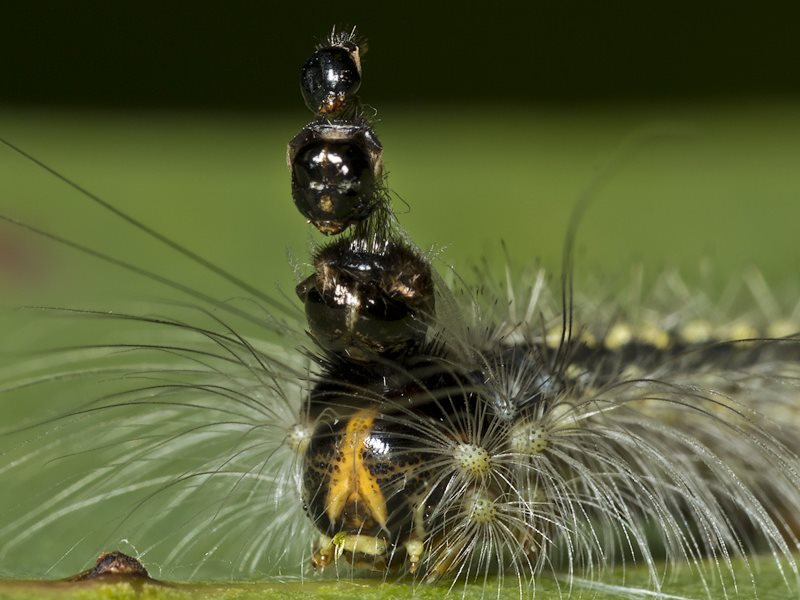
The gum-leaf skeletoniser caterpillar has what looks like a tall, fuzzy horn on top of its head. This strange feature is actually a “hat” made from the old heads the caterpillar sheds every time it molts. Each time it casts off an old skin, the caterpillar pops its most recently shed head capsule on top of its new, bigger head until it has created an impressive little tower. Researchers hypothesize that the unique headdress is in some way a defense mechanism, distracting predators into attacking the empty heads instead of the caterpillar.
The Musical Maestros of the Insect World
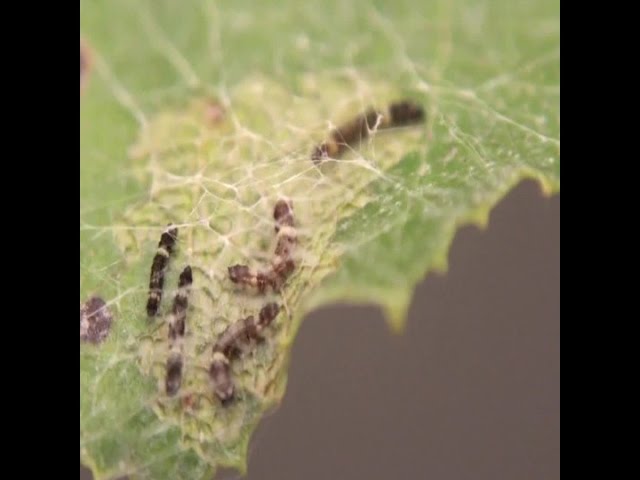
One species of caterpillar has developed a highly advanced method of communication: They talk to each other with their butts. Birch caterpillars have specialized anal “oars” which they drag across leaves to create signals to other caterpillars. This is not the only method of communication in the birch caterpillars’ repertoire; they also shake their bodies and drum and scrape their mandibles along leaf blades to create different signals to other caterpillars in their group.
Toxic Nicotine Breath
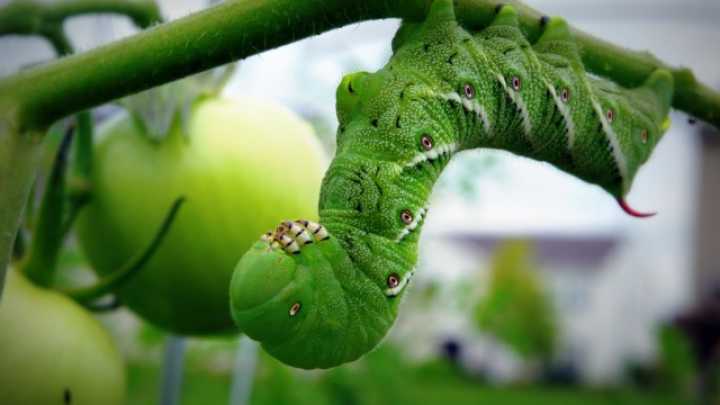
The tobacco plant contains nicotine, a toxic poison, which the plant uses as a defense mechanism against animals that otherwise would seek to consume it. Not only can the tobacco hornworm easily consume doses of nicotine that would be deadly to any other animal, the caterpillar also contains a unique gene which allows it to utilize the toxins in nicotine as a defense mechanism. The caterpillar absorbs nicotine from its gut into its hemolymph, which is the liquid that acts as an insect’s bloodstream. It then opens little pores in its skin called spiracles which release toxic miasmal clouds of the poison. This process is called defensive halitosis.
Hawaii’s Carnivorous Caterpillars
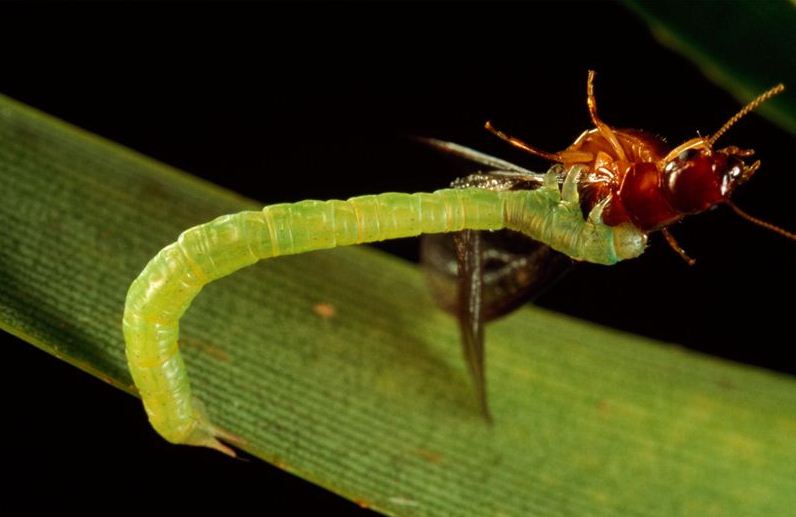
Hawaii is home to a number of carnivorous caterpillars. One species, Hyposmocoma molluscivora, won’t eat plants even if it is starving. This little caterpillar, which is only around eight millimeters long, prefers to dine on snails which it ambushes then slowly eats alive. To prevent the snail from escaping, Hyposmocoma molluscivora attaches its victims to a leaf using silk, in the same way a spider cocoons its prey. The caterpillar then wedges its way into its incapacitated snail-victim’s shell, literally trapping the poor fella in its own home. The caterpillar then proceeds to slowly eat its victim alive until nothing but an empty snail shell is left.
Caterpillar Overlords
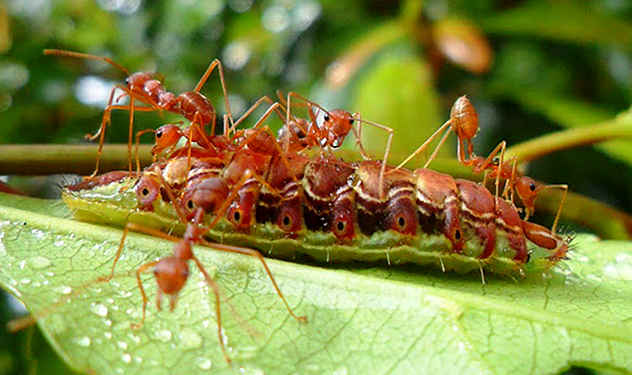
The caterpillars of Japan’s oakblue butterfly have an ingenious defense mechanism which protects them against spiders, wasps, and other insect-predators: They enslave ants, forcing them to become aggressive bodyguards, by using a chemical which the caterpillar secretes in sugary droplets through its skin. The ants are drawn to the scent of this delicious secretion, and once they have consumed it, they will not return to their nest, forage for food, or leave the side of their caterpillar overlord. The caterpillar also has an attack command. When it inverts its tentacles, the caterpillar’s ant minions become extremely aggressive and will attack any nearby insects.
Free-Floating Guts and Soft-Bodied Robots
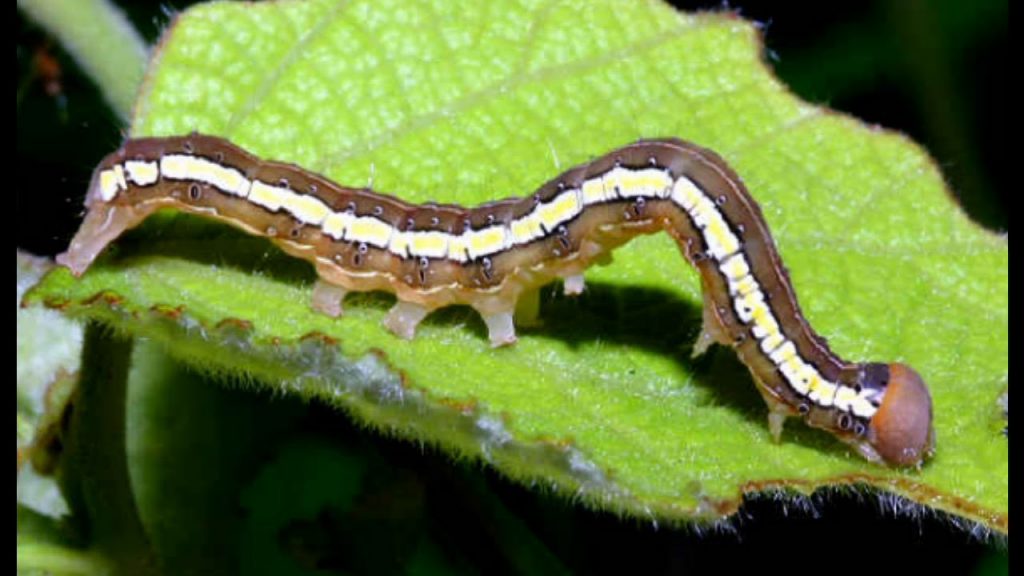
Caterpillars crawl in undulating waves, but their guts move nearly a full step in advance of the rest of their body. You may be wondering why it’s important for anyone to know what a caterpillar’s guts do when it crawls, but these findings are actually influencing the design and development of soft-bodied robots that may be used in transportation. A robot with a skeleton has a fixed structure, but a soft-bodied robot can deform, both to the outside environment and to the interior contents.”
Related Content
Bizarre Ways People Have Been Killed By PetsPeople Who Died Trying to Save a Dog’s LifeAnimals That Don’t Look Dangerous but Are Actually Deadly
